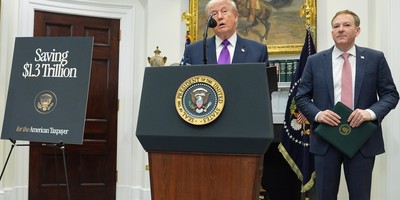What the hell is this? I mean, seriously, give the professional left enough time and they will make the case that white nationalism, or whatever problematic trend, rests within any given topic. People with too much time and money on their hands are a dangerous mix. College-educated whites are some of the worst offenders, but academia as a whole is just a ‘woke’ cesspool that churns out things that really makes me wonder if we’ll be able to survive co-existing with these idiots. Ecology is the topic for demolition, or at the very minimum an overhaul. Why? Well, the term ‘invasive species’ is offensive. I’m not kidding. Vox, because this is what Vox does, had a lengthy piece about the need to change the term due to its nativist roots, or something:
Marine ecologist Piper Wallingford was doing fieldwork on the rocky shore of Laguna Beach, California, in 2016 when she noticed a dime-sized creature she’d never seen before. It was a dark unicorn snail, a predator that drills into mussels and injects an enzyme that liquefies their flesh. “Then,” Wallingford explains, “they basically suck it out like soup.”
[…]
Ecologists expect climate change to create mass alterations in the habitats of these “range-shifting” or “climate-tracking” species, as they’re sometimes called, which will reshuffle ecosystems in ways that are hard to predict. The migrations are critical to species’ ability to survive hotter temperatures.
The scientific community largely views this kind of habitat shift as a good thing, Wallingford and other ecologists told Vox. But the primary lens available to the general public and to policymakers is less forgiving. “Invasive species” is a concept so ingrained in American consciousness that it’s taken on a life of its own, coloring the way we judge the health of ecosystems and neatly dividing life on Earth into native and invasive.
[…]
For decades, invasion has been a defining paradigm in environmental policy, determining what gets done with limited conservation budgets. Species deemed invasive have often been killed in gruesome ways. Even though invasion biologists readily point out that many non-native species never become problematic, the invasion concept almost by definition makes scientists skeptical of species moving around. But a growing community of scientists and environmental philosophers now question whether a concept defined by a species’ geographic origin can capture the ethical and ecological complexities of life on a rapidly changing planet. In the 21st century, there’s no such thing as an undisrupted ecosystem, and this will only become truer as climate change and habitat loss accelerate. It’s crucial that we get this right.
[…]
“Invasive species” might feel like a firmly established scientific category, but invasion biology, which studies the impacts of non-native species, is a relatively young field.
British ecologist Charles Elton drew attention to non-native species in his 1958 book The Ecology of Invasion by Animals and Plants, arguing that there is a place, or niche, for every species on the planet where they’ve evolved to survive. Those that move, he believed, should be removed.
Even before that, “There were people who recognized invasions and remarked in great detail on them,” including Charles Darwin, says University of Tennessee ecologist Daniel Simberloff, one of the originators of invasion biology. It wasn’t until the 1980s, Simberloff says, that it cohered into a subfield of scientists talking to each other and looking at invasions as a general phenomenon.
[…]
Historically, the term has erroneously expanded to the idea of, “‘If you’re not from here, then you are most likely going to be invasive,’” Sonia Shah, author of The Next Great Migration: The Beauty and Terror of Life on the Move, said on a June 2021 episode of Unexplainable, Vox’s science-mysteries podcast. Conservation policies have been crafted around the idea that if something is not from “here” — however we define that — “then it is likely to become invasive, and therefore we should repel it even before it causes any actual damage,” as Shah says, which is part of the nativist bent that pervades ecological management.
Recommended
What the hell did I just read? It goes nowhere. Who thinks like this? Just study freaking ecology, do your experiments and write the reports. These folks seem more concerned about the name than doing the actual work that’s related to their fields of study. Asian snakeheads are not from here. they’re invasive. It’s okay to say that—and they’re a problem. They’re also reportedly good eats, but that’s beside the point. Just needless drama and in ecology of all places. Stop!
H/T Fox News

























Join the conversation as a VIP Member